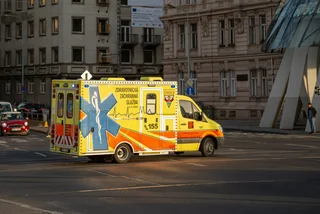Written by Stefan Kukura
for Bridge Magazine
Nowadays traveling to international destinations for both business and pleasure is relatively easy. Unfortunately, travel to exotic destinations can potentially contribute to serious illness or even lead to death. The potential risks of foreign travel arise mainly from exposure to different infectious agents and unusual environmental conditions in visited countries.
The 80 million travelers each year with destinations in Africa, Asia, Latin America, PacificIslands and remote areas in Eastern Europe are exposed to a broad range of infections that are rarely encountered at home. Travelers’ diarrhea is the most frequent ailment of visitors to countries with poor hygiene, while Malaria presents another important risk for travelers going to endemic areas.
PARTNER ARTICLE
How to make holidays abroad as safe as possible?
In order to make holidays abroad as safe as possible, it is necessary to know the health risks involved and take a rational approach towards minimizing and preventing them. Many infectious diseases that might be acquired during travel are preventable with appropriate immunizations and prophylaxis.
Advising travelers on vaccine-preventable illnesses is the responsibility of primary care physicians. A medical consultation should be obtained at least one or two months before travel to allow time for evaluation and for immunizations. After being informed about your plans, the doctor will advise you about the risks for travel-related diseases based on your destination, the time available before departure, and current knowledge of the epidemiology of vaccine-preventable diseases. Routine childhood vaccinations should be reviewed in all travelers and updated as necessary.
Medical advice to the traveler should include evaluation of the risks of adverse outcome related to the traveler’s pre-existing medical conditions taking in consideration the itinerary of the trip and anticipated activities.
How to avoid complications arising from contaminated food and water?
Contaminated food and water can cause the so-called travelers’ diarrhea and hepatitis A. In areas where sanitation and personal hygiene may be poor, it is prudent to be careful with consumed food and water. Fruit peeled by the traveler is safe, while vegetables can be contaminatedand should not be consumed raw. Also unpasteurized dairy products should be avoided, as should inadequately cooked fish or meat. If water is of uncertain quality, do not drink it nor use ice made from it; boiling will render water safe. Chlorination will kill most bacterial and viral pathogens, though some parasites might survive.
And what about infections transmitted by insects?
Use of insect repellents, bed netting and protective clothing should decrease the risk of mosquito borne infections (eg, malaria, yellow fever and dengue fever) or tick-borne infections. If traveling to areas where Malaria is endemic, travelers need to receive clear advice on diminishing exposure to mosquito bites and on full compliance with chemoprophylactic regimens. In areas where schistosomiasis is prevalent, swimming in fresh water should be avoided, although swimming in chlorinated or salt water is safe.
Prevention of malaria infection
Malaria is transmitted by the bite of a female Anopheline mosquito. It is one of the most common infections worldwide, especially in tropical climates, with more than 200 million cases and more than 1 million malaria related deaths annually.
The two most important components of malaria prevention are avoidance of mosquito bites and chemoprophylaxis. It is advisable to diminish exposure to mosquitoes between dusk and dawn by remaining in screened areas whenever possible, using mosquito netting, covering exposed skin with clothing and applying insect repellent.
Even brief exposure to infected mosquitoes can produce malaria and travel in endemic regions, no matter how transient, requires the use of chemoprophylaxis. A number of drugs are available for use in malaria prevention, and your doctor will advise you about what is best for you based on your own conditions and the visited area.
It is very important to initiate chemoprophylaxis prior to arrival and to continue medication for four weeks after departure from malaria endemic regions.
In spite ofprevention, it is still possible to acquire malaria. The traveler should be alert to the development of symptoms, which might require specific therapy. Symptoms can begin as early as eight days after infection or as late as several months after departure from a malaria endemic area. Patients with malaria almost invariably have fever, but accompanying symptoms can vary. Travelers should be cautioned to seek medical attention promptly for any febrile illness and to inform their physicians of their recent itinerary.
Pregnant women should be advised to defer travel, if feasible, until after delivery. For pregnant women who cannot defer travel or reside in malaria areas, careful evaluation by the doctor will establish which is the safest drug to use for malaria prophylaxis.
What about other travel related risks?
Travelers are at risk for sexually acquired diseases if they engage in casual sex. In some countries the prevalence for hepatitis B, HIV-infection, syphilis, gonorrhea, etc. in prostitutes exceeds 50%! The use ofcondoms decreases significantly the risk of sexually acquired diseases.
Travelers are advised to carry supplies of any medications they use regularly, since equivalent drugs may not be available at their travel destination. For medications required for daily use, the traveler should carry these in their hand luggage. A specific group of travelers are patients with diabetes. East-west travel across times zones often requires adjustments in insulin dosing. It is advisable to obtain a medical kit containing commonly used drugs for the most common travel diseases.
Keep in mind that accidents, especially motor vehicle accidents, account for about one quarter of deaths among the travelers as they are often not familiar with the local driving conditions.
And what about pregnancy and travel?
Travel during pregnancy is generally safe, although the nature of the travel and the potential risks should be considered. A history of prior complicated pregnancies should lead the future mother to avoid extensive travel during subsequent pregnancies
What immunization do I need for travel?
In preparation for a trip, individuals should arrange a visit with their personal physician and come to this visit with a record of prior immunizations and an itinerary. The doctor will then advise about risks ofinfections, immunizations and other necessary prophylaxis.
The most common vaccine-preventable diseases are:
·Yellow fever is a mosquito-borne viral infection endemic in equatorial Africa and in areas of South America. Yellow fever vaccine is safe and effective. Initial immunization requires a single dose. A booster dose is required every 10 years. Immunizations are available only from designated centers.
·Cholera is due to toxigenic Vibrio cholerae and is epidemic in different regions of the world. It is acquired by ingestion of contaminated water, ice, or food. Travelers to endemic regions should be advised of the importance of oral rehydration salts in treating cholera. The currently available parenteral cholera vaccine is prepared from killed bacteria. Routine immunization is not recommended for travelers.
·Hepatitis A is prevalent in many less developed countries. It is the most common preventable infection acquired by travelers. Immunization with the highly effective Hepatitis A vaccine has become the principal approach to prevent this disease in travelers.
·Hepatitis B. This serious viral disease is transmitted through blood or bodily secretions and the risk of acquiring the infection is generally low.The risk increases, however, in regions in which hepatitis B is highly prevalent if there is sexual contact with infected persons or if tattooing or other body piercing is obtained. Therefore, the immunization should be considered in those with potential need for medical or dental procedures. The available recombinant hepatitis B vaccines are safe and effective.
·Typhoid. Salmonella typhi infection is prevalent in many countries. Although foreign travel has accounted for an increasing proportion of typhoid cases, the risk of acquiring typhoid during travel remains low. Because infection is acquired from contaminated food or water, typhoid vaccine is recommended for persons traveling to areas off the usual tourist itinerary and to areas that have typhoid epidemics.
·Tetanus and diphtheria. A tetanus-diphtheria booster should be administered every 10 years. Older individuals and women are more likely to lack the tetanus and diphtheria antibodies and therefore to require boosters.
·Poliomyelitis. Travelers to countries in which polio is endemic or in which there is a current epidemic are at risk for the disease and their previous immunization should be revised. Most developing countries are still endemic for polio although polio is targeted for global eradication based upon ongoing mass immunization.
·Rabies vaccine is an inactivated viral preparation. Pre-exposure vaccination with rabies vaccine is not indicated for most travelers but should be considered for those who anticipate contact with wild animals or will stay for a month or more where rabies is endemic. Pre-exposure immunization does not eliminate the need for post-exposure treatment.
·Meningococcal disease. Although developing meningococcal disease is not common, immunization should be considered for travelers to areas with recognized epidemics, especially if prolonged contact with the local population is anticipated. Vaccination against meningococcal disease is legally required only for pilgrims who make the journey to Mecca, Saudi Arabia.
·Japanese encephalitis is a viral infection transmitted by mosquitoes and it may occur in epidemics during the late summer and autumn in northern tropical areas. Although Japanese encephalitis is highly
uncommon, prevention is important for travelers specifically to epidemic or endemic areas because the risk of serious neurological consequences is high. Exposure to mosquitoes should be minimized.Vaccination should be considered for persons who will travel during summer monsoon months, for those who will visit rural areas, and for those planning to stay there more than one month.
What if vaccination is not possible?
There are a number of contraindications to the administration of different types of vaccines. Vaccines that contain live attenuated viruses should not be given to pregnant women or to persons who have immunodeficiencies and those receiving corticosteroids or irradiation. Contraindications to vaccination also include hypersensitivity to components of the vaccine. Your doctor will advise about what is best for you in these specific cases.
Dr. Stefan Kukura, Dr. Julia Concha-Gonzales, UnicareMedicalCenter
For more information about the services offered by Unicare, please visit www.unicare.cz












 Reading time: 7 minutes
Reading time: 7 minutes 





















